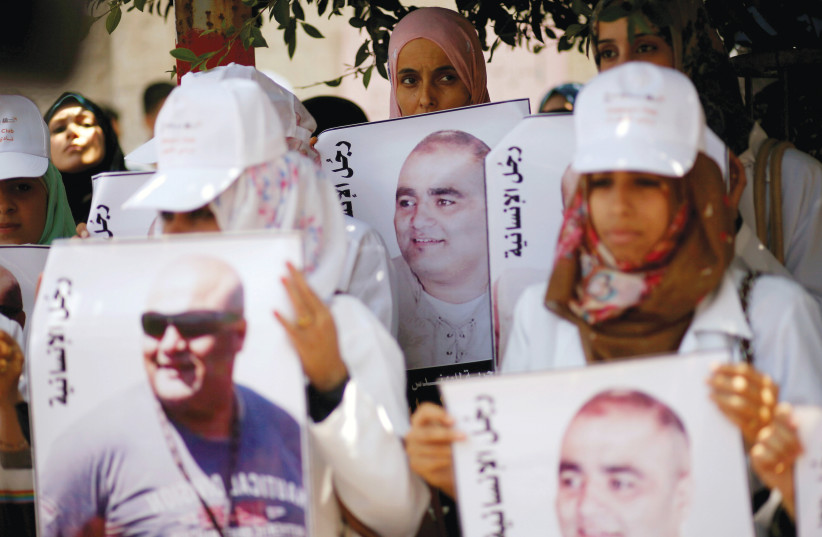The High Court of Justice recently extended the detention of World Vision case defendant Mohammad El Halabi for another 90 days, with expectations that the verdict will come out before June – around six years from the time of his arrest.
The decision has not been publicized due to much of the case being under a gag order, but The Jerusalem Post has confirmed the extension.
The state prosecution accused Halabi of assisting Hamas while engaged in his humanitarian work, although he claims the charges against him were made to delegitimize Palestinian civil society.
His case has come before the High Court dozens of times since his August 2016 indictment, but each time the justices have extended his detention pending a verdict in the trial.
The long-delayed and time-consuming trial ended with closing arguments in July and October 2021. It is unclear what is delaying the verdict.
However, the High Court said that before issuing another extension, it would contact the Beersheba District Court to find out when the verdict would be issued. Based on that, expectations are that the verdict will be issued before June.
Halabi has vehemently denied the charges and has accused the prosecution and the Shin Bet (Israel Security Agency) of manufacturing charges, coercing a confession in order to undermine humanitarian organizations in Gaza, and dragging out the case.

To date, the defendant has been unloading on the prosecution but the state has refrained from responding publicly due to concerns about revealing classified intelligence.
Halabi was indicted in August 2016 for smuggling $7.2 million a year to Hamas to buy weapons and build attack tunnels instead of for use by World Vision for food, humanitarian assistance and aid programs for disabled children.
Neither World Vision nor an Australian government audit found the wrongdoing allegedly uncovered by the Shin Bet.
Since March 2021, more allegations have emerged from Halabi’s side, including that he was pressured by an undercover informant in detention into confirming details.
According to the defense, Halabi told law enforcement that the confession was coerced from the moment they raised it with him. The original document recording the confession was lost by police.
The defense says the case should have been thrown out given the circumstances in which the confession was obtained, while the police record of what was said is an inauthentic photocopy, raising questions of a police cover-up.
In addition, the defense has claimed that World Vision did not transfer materials to Gaza at some of the crossing points at which the prosecution claims Halabi made illegal transfers to Hamas.
The Post has learned that although these allegations are new to the public, the prosecution has been aware of them and responded to them behind closed doors throughout the trial.
While the prosecution’s responses are classified at this stage, it appears that it would acknowledge using an undercover informant, a standard approved tactic, and that no illegal pressure was applied.
Moreover, the prosecution would point out that the court already rejected any allegations of a coerced confession earlier in the case and that the only question left to the court is how much weight to give the confession.
Concerning the lost document allegation, it appears the prosecution would express regret, but would reject any conspiracy theories, pointing out that this is not the first case such an error has occurred. The prosecution might also note that the defense has not flagged any specific issues to invalidate the authenticity of the copy of the confession.
Regarding the border-crossing issue, the prosecution would likely respond that Halabi was a clever operator and sometimes used different organizations or names to move materials, while using World Vision as his main laundering tool.
Both sides accuse the other of unconscionable delays relating to fights over how the trial would take place, what evidence the defense would get to see and the possibility in the earlier years of reaching a plea deal.